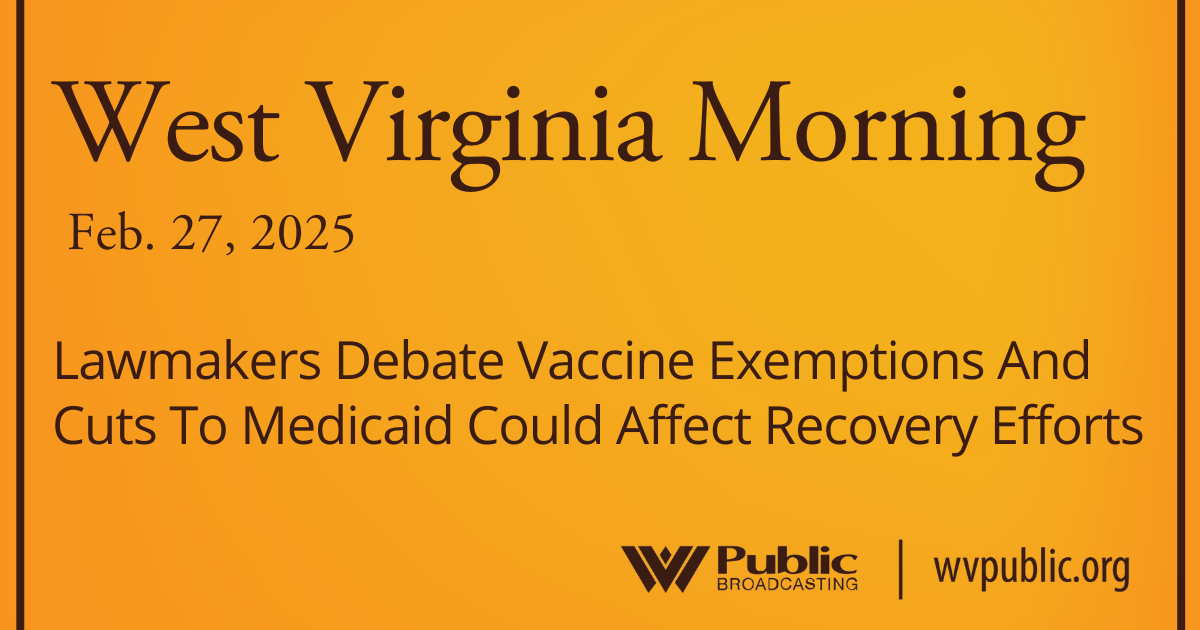The board of the foundation responsible for distributing West Virginia’s opioid settlement funds met Thursday to discuss its first grant cycle and hiring of staff.
Treasurer Jeff Sandy reported a balance of $225,683,388.71 as of September 30, 2024. The Foundation has earned $8,912,258.29 from investments of its initial settlement funds in the past year.
According to Sandy, the board’s September expenses were $80,942.55. The board approved the financial report and its publication on the West Virginia First Foundation’s (WVFF) website.
Governor-appointed board member representing Region 2 and Jefferson County Prosecuting Attorney Matthew Harvey serves as chair of the board.
He explained that the board will no longer be taking questions from the media and public during their monthly virtual meetings, citing privacy concerns.
“We’re going to again request that all questions for today’s meeting be submitted by email, and responses will be provided rapidly,” Harvey said. “We want to make sure that we’re fair and equitable to all the grant seekers in order to do that and out of an abundance of caution and to be thoughtful and thorough.”
Executive Director, Jonathan Board highlighted the completion of the Initial Opportunity Grants (IOG) application cycle, with 174 applications received, primarily in youth prevention and workforce development.
The target areas for the IOG were diversion programs, which help people arrested for drug use avoid conviction and incarceration by diverting them to treatment options instead, and interdiction programs, which work to prevent illicit drugs from reaching their destinations.
Target areas also included youth prevention and workforce development, child advocacy centers, neonatal abstinence programs and transitional and recovery housing expansion.
“It has been a lot of late nights and a lot of early mornings and a lot of just pulling 24 hours to get this out the door,” Board said. “As you know, we just closed the deadline there on those applications this past Saturday, and (we are) very excited, we were performing intake review on the applications to determine compliance of the requirements of the IOG application.”
Board reported the majority of applications came from Region 4 which includes county and local governments in Monongalia, Braxton, Lewis, Harrison, Marion, Preston, Taylor, Tucker, Barbour, Randolph, Gilmer, Doddridge and Upshur counties.
Applications were due on October 5, 2024 by 11:59 p.m. and Board said they were receiving applications until the last moment.
“We’re very excited to go through those,” Board said. “So the intake process is occurring right now, and that is an objective standard.”
Applications will be reviewed by the Interim Grant Committee and the Expert Panel. Final approval will be made by the Board of Directors.
“If those items were submitted in their complete application that goes into a specific folder, both by region and by target area,” Board explained. “Those will then be presented to those who are assigned to score, both from the IOG and, of course, all of our expert panelists that we use the scoring rubric that was established in the application that will then be taken by target area. Those highest scoring will go forward onto the board of directors, and again, we’ll apply that conflict policy throughout the process, and then it gets up to the board of directors to review and score.”
Awards will be announced on or before Dec. 31. Grantees will first receive 40 percent of their total allotment up front, then file financial statements with the foundation documenting the use of the funds to receive three more installments of 20 percent of the allotment to complete the award.
The WVFF board approved $19.2 million in IOG during its meeting on Sept. 5. That is about 8.5 percent of the funds the foundation currently holds, according to its July financial statement. West Virginia is expected to receive about $1 billion after all its opioid settlement lawsuits are paid out.
Board highlighted the Foundation’s commitment to avoiding conflict of interest during the IOG or future grant cycles.
“Board members shall not be permitted to participate in the Iog application process,” Board said. “If there’s a direct or indirect conflict of interest, any member of the board whose organization is responding to an IOG application has to fully recuse themselves and be removed from the process and not participate in any review scoring or vote in the target area or areas in which they apply.”
Board also introduced the Foundation’s new employees.
Chief of Staff, Jessicah Cross has been with the Foundation for three weeks and previously worked for the U.S. Senate.
Director of Operations, Rachel Thaxton, is in her second week at the Foundation and previously worked as the interim and assistant director of the West Virginia Office of Drug Control Policy.
“As the foundation’s sole employee for the past three and a half, four months, I can’t tell you how wonderful it is to have some folks standing alongside and especially of this, this acumen and wisdom,” Board said.
Board said he expects all hiring to be complete by mid-November. The foundation meets the first Thursday of each month, subject to change. Updates are posted on the foundation’s website.
Appalachia Health News is a project of West Virginia Public Broadcasting with support from Marshall Health.
